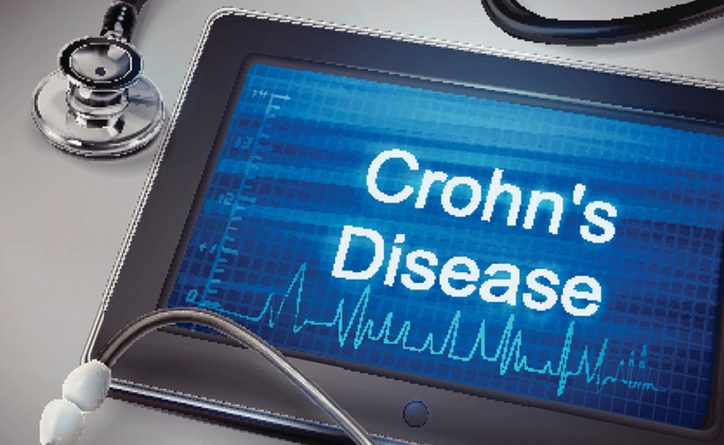Many health professionals believe Crohn’s disease belongs to a group of digestive conditions called Inflammatory Bowel Disease (IBD). Crohn’s disease is considered an autoimmune disease that is incurable. Symptoms include weight loss, fever, fatigue, loss of appetite, rectal bleeding, persistent diarrhea, abdominal cramps and pain, sensation of incomplete evacuation, and constipation.
Who develops Crohn’s disease?
Currently, as many as 700,000 Americans may suffer from Crohn’s disease, with most of them being young adults between the ages of 15 and 35. It is not completely understood as to why certain people get this chronic condition, and there are still many studies being done. While diet and stress aggravate the condition, these two factors do not cause the disease.
What are possible risk factors of Crohn’s disease?
Experts believe that there are two main culprits that actually cause Crohn’s disease: genetics and environment. It has been proven that this disease runs in families. In fact, it has been reported that 1 in 5 people have a close family member with the disease. Environment plays a factor as well; the disease is more common in those who live in urbanized areas and large cities in industrialized nations. People who live in northern climates seem also to be more susceptible to the disease.
Your ethnicity and health habits can also impact you chances of developing Crohn’s disease. It is more common in white people, especially Jewish people in Eastern Europe. Smoking cigarettes also increases your chances for this condition. Many of these risk factors seem completely unavoidable as you certainly can’t control genetics, ethnicity, or age. Really the only risks that you can influence are whether you smoke cigarettes and where you choose to live.
What can I do if I develop Crohn’s disease?
It’s difficult to prevent Crohn’s disease, but there are certainly things that you can do in order to manage the symptoms. One obvious way to minimize the symptoms is to watch what you eat. Avoid foods that are fried, greasy, spicy, or high in fiber. It may also help to avoid dairy and gluten and limit your caffeine and alcohol intake.
It can be beneficial to avoid nonsteroidal anti-inflammatory drugs (NSAIDs), such as ibuprofen. Doctors often prescribe anti-inflammatory drugs and immune system suppressors or a combination of the two for people with Crohn’s disease. Alternative treatments, such as probiotics and fish oil, have also helped some patients.
Because many of the symptoms that accompany Crohn’s disease, such as stomach pain and persistent diarrhea, can be attributed to other illness and diseases, it is important to use several different tests and procedures to arrive at a Crohn’s disease diagnosis. If you are exhibiting symptoms that include severe stomach pain, fever, chills, vomiting, or sudden weight loss, it is important to see your doctor to find out if you have Crohn’s.
How is Crohn’s disease diagnosed?
People who have Crohn’s disease may not exhibit ongoing symptoms, but flare-ups are common when people have infections or hormonal changes. Few people who are diagnosed with Crohn’s will have severe symptoms that are ongoing for long periods of time. If you have noticed that your symptoms come and go or if your symptoms are getting worse, it is time to see your doctor. The very first step of diagnosis is getting a physical exam. If you have one or more symptoms that are a sign of worsening Crohn’s, your doctor may also send you for X-rays or a variety of tests.
What tests can diagnose Crohn’s disease?
The tests ordered for diagnosis will depend upon the type of symptoms you are noticing and how bad these symptoms are. One of the most common tests that can lead to an accurate diagnosis is a barium X-ray. The X-ray will be taken of the small intestine or the colon to see if there is inflammation in the digestive tract. If there is swelling at the end of the small intestine, this could be enough for your doctor to arrive at a diagnosis. You may also be asked to complete a stool analysis, in which your stool will be tested for bacteria or signs of infection.
A doctor may also order a colonoscopy to look inside of the colon with a lighted tube. If there is any abnormal tissue, the doctor may perform a biopsy and use a sample of the tissues to find out if the tissue is inflamed or if you are suffering from another disease. After the doctor has ruled out other causes of your symptoms and performed one or more of the tests, your diagnosis may be confirmed.
Conclusion
You should visit your primary care physician to undergo a physical exam if you believe you have symptoms that could be attributed to Crohn’s disease. Your doctor will order tests to rule out other culprits like lactose intolerance or an upset stomach. After test results are reviewed, the doctor will be able to confirm a diagnosis or pinpoint other possible copy-cat conditions that carry the same symptoms.
Featured Image: Thinkstock/HUNG KUO CHUN




